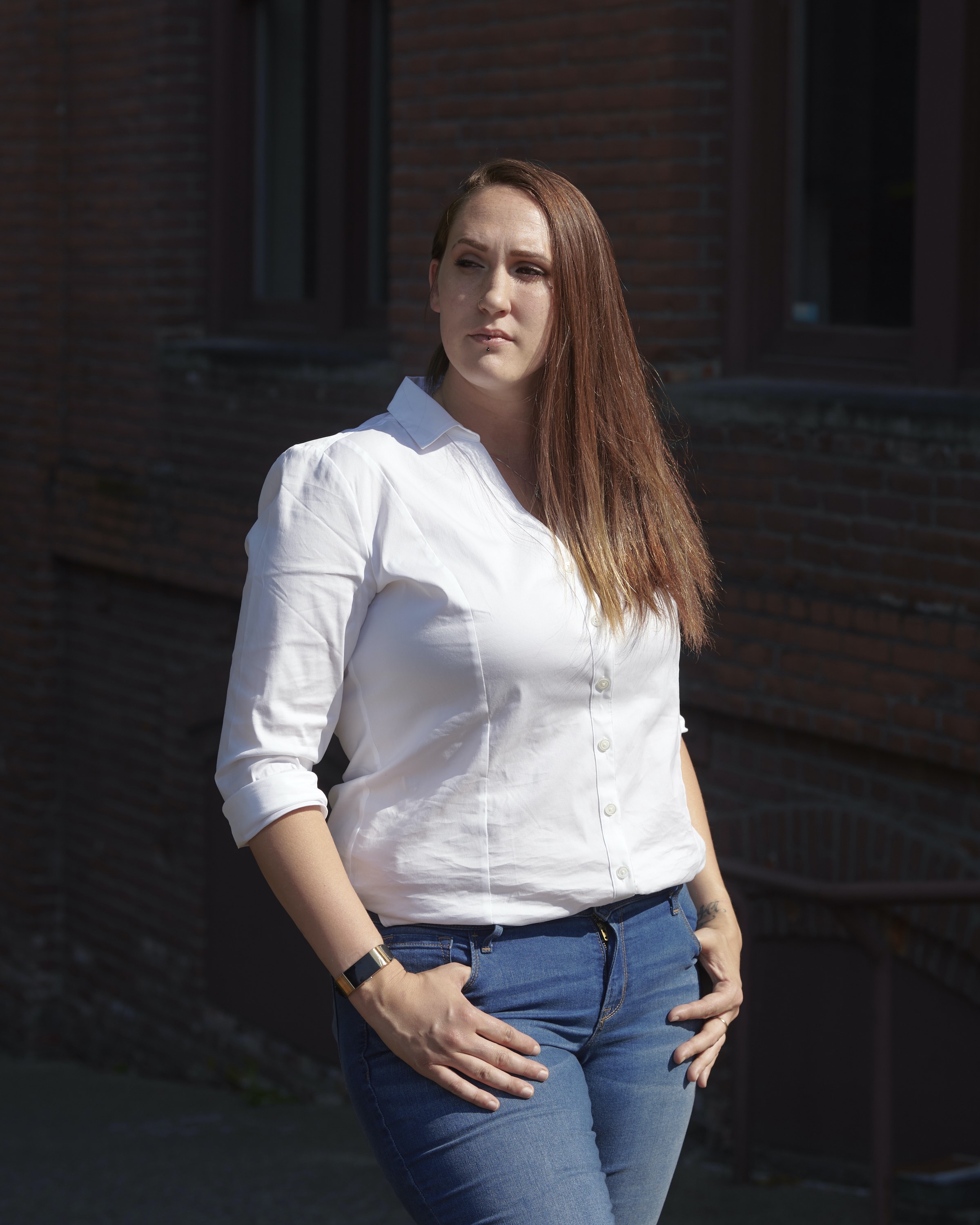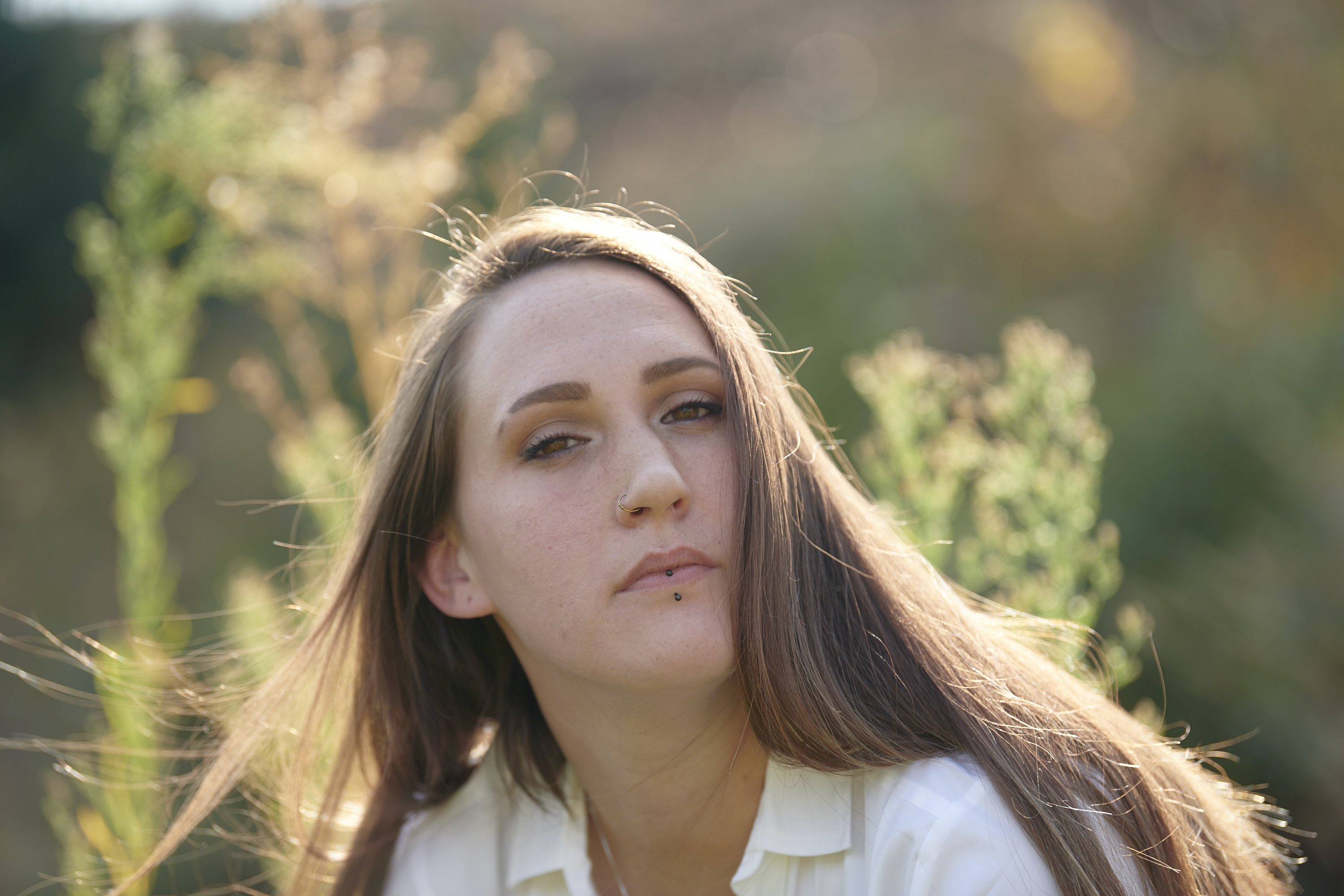After prison: Building a future in urban design After prison: Building a future in urban design After prison: Building a future in urban design
After holding down a job at Mod Pizza, Amanda Henritze sees bigger things in her future in architecture. “I just know, eventually, I will make my way,” she says.
By Omari Amili | Photos by Meron Menghistab | December 2020

This is part of our “After Prison” series of interviews by Omari Amili.
Go here to see all of the stories.
After her release from prison, Amanda Henritze began working for Mod Pizza, an employer that is known for giving people second chances. Despite doing well and being in position to climb the ladder within the company, Henritze knew that education could be the key to opening up other options. She is studying Urban Design with the intention of making an impact on local communities.
Omari Amili: When you started working at Mod Pizza, what did you perceive as your possibilities?
Amanda Henritze: I just wanted to get on a schedule and get some experience so I could go to a restaurant and be a waitress. That was based on having this criminal history. It wasn’t what I actually wanted for myself—I was basing it on being a felon. I believed that nobody would hire me, so I guess this is as good as it gets. I have always work in food, and I knew they did not do background checks. I did know that Mod Pizza did have opportunities for people with felonies, so I decided to see where it took me.
Amili: Once you got enrolled at Tacoma Community College and started pursuing an education, what was the impact on your lifestyle and how did it impact your vision for your life?
Henritze: The impact on my lifestyle was, I was tired. But for my vision, I think it just made me hungry to understand more, especially being in class with a whole bunch of high school students and seeing how much they know, in comparison to how much I don’t. I really needed to take this opportunity to try and learn as much as I can to not only catch up, but just to be able to have intelligent conversations—to be able to have a conversation with my grandma about politics and understand, at least somewhat.
It also started to make me see different things in the world, rather than having one scope. This has been my life for so long: crime, drugs and money. And now prison, I felt defined by that. But then after going to TCC, I met a lot of good professors that I spent a lot of time with. There was one the first quarter who said, ‘Don’t ever sell yourself short. Who cares if you have a felony? Be the first person that gets hired at some place. Be the exception.’ It just makes me want to go to school more.
Amili: When I enrolled in college, that had a major impact on my identity. Before, I’d probably call myself a felon, but now, I’m a college student, and I’m working toward something positive. Did you see any impacts on your identity?
Henritze: Yeah, at barbecues with my girlfriend’s family, people ask, ‘What are you doing? How’s work?’ Or, ‘How’s it going?’ Now I can actually be proud of something, because I wasn’t really proud of working at a pizza place. So, it gave me a sense of accomplishment almost, even though I hadn’t finished. I’m actually going to school to do something that is in a better direction. It definitely made me start to think about what I want to do with my life, and exposed me to concepts I never knew. It has definitely shaped who I am and my identity.
Amili: Don’t sell yourself short with the Mod Pizza experience. It’s not your ultimate goal, your endgame, but for people who grew up like you, coming from that life of crime, just holding down a job is a major accomplishment.
Henritze: Yeah, I do recognize that alone it is an accomplishment. My girlfriend’s brother was my boss, and he would tell me he’ll help me get wherever I want to go. I remember talking to him about how I don’t want this to be my end, because there are a lot of possibilities. When I finally quit, one of the district managers contacted me and asked, ‘What are you going to school for?’ And I said urban design and explained it. And she said, ‘OK, we might be able to hire you back as some kind of design expert when you graduate.’ Some people can thrive there, and I know a lot of people who are doing big things. I have a friend who visits prison, and she’s doing what she loves. Mod definitely still has opportunities and is a good company, but I believe the more I learn at UWT, the more I want to invest my education to serve communities and create equity through the built environment.

“I was worried about being a felon. That's always in the back of my mind. It's important that you make friends and be part of your campus. The moment I started to do that, it was a little bit easier.”
Amanda Henritze
Amili: While I was in prison, I just had no idea that the University of Washington was a possibility. For you, going from community college to the University of Washington, how did that make you feel?
Henritze: I was worried about being a felon. That’s always in the back of my mind, and that was kind of weird to me. But then at the same time, everybody should be able to get an education, so the world is kind of aligned with my beliefs for once. But I still have this imposter syndrome, where I don’t know why I’m here. Sometimes I feel out of place, but I have a couple friends.
Amili: As far as the transition from incarceration to education, what would you say is the most difficult part of that for you?
Henritze: Figuring out what you want to do. Or even what subjects you like, and how you can apply that to a job. That was difficult for me. I like art, and I like this and I like that, but what kind of job can I get? And then, child care—just the lack of support, because my grandparents didn’t live here at that time. And then, learning how to study. At first I started taking way too many notes, like every piece of information is important. I was really just learning how to study. For the first two years, I didn’t talk to anybody in my classes ever.
Amili: Was that because of your background, like the imposter syndrome stuff? Or was it just who you are?
Henritze: I felt like I’m way older. Like, the other students are Running Start students. I didn’t know how to relate to anybody, because of my age and me being a felon. I thought I wasn’t going to make friends, like when I was in prison. But I think it’s important that you do make friends and be part of your campus. The moment I started to let go of the prison mentality, it was a little bit easier. I made some really strong connections with some amazing people and with the professors.
Amili: So what are you hoping to achieve with the rest of your time at UW Tacoma and what’s your ultimate endgame?
Henritze: My ultimate endgame will probably be some kind of urban designer for a design firm, focusing on equity, maybe a resilience planner. The more I learn about urban design, the more I like architecture and the built environment. I want to do something with that, for sure. But, you know, I’m still not sure yet how to get there. I just know, eventually, I will make my way. Next quarter is when I start doing the really interesting stuff, like more of an application. I’ll be working in studios and actually solving problems rather than learning the design history, the history of civilizations, and how their cities formed.
I want to have a positive impact on Tacoma. I know my neighborhood, Ballard, has been completely changed. I go visit and it doesn’t look at all the same. Even the house I grew up in, they tore down my condos. Straight up gentrification. I guess it’s so expensive, and that’s starting to happen down here. We could probably come up with a way for it to slow down. I just want to make a positive impact through design and art, especially since I never knew that was an option.